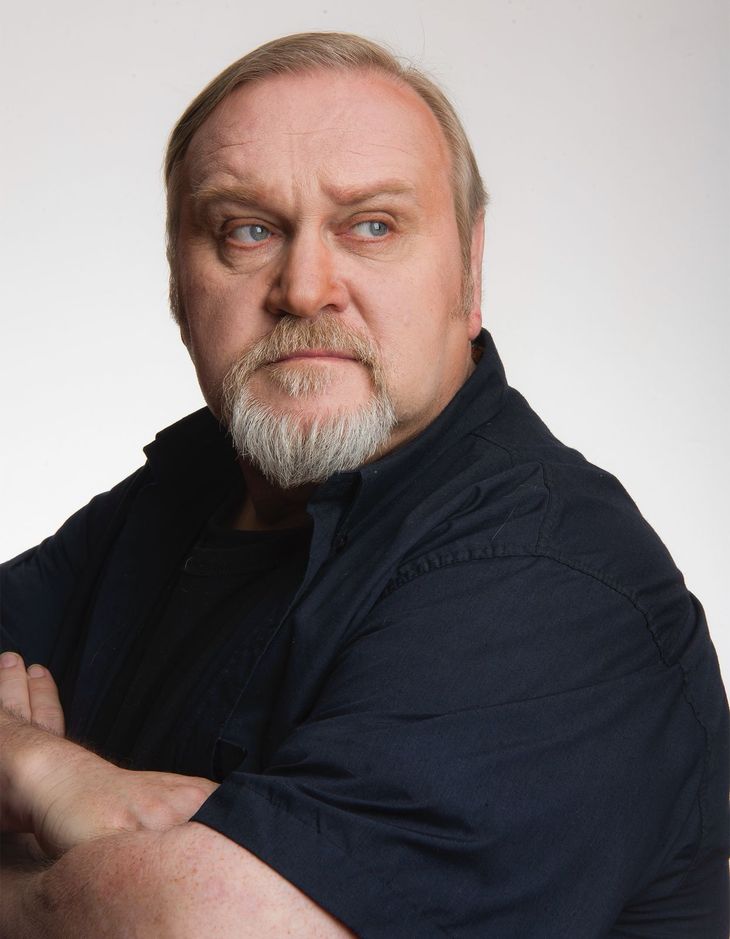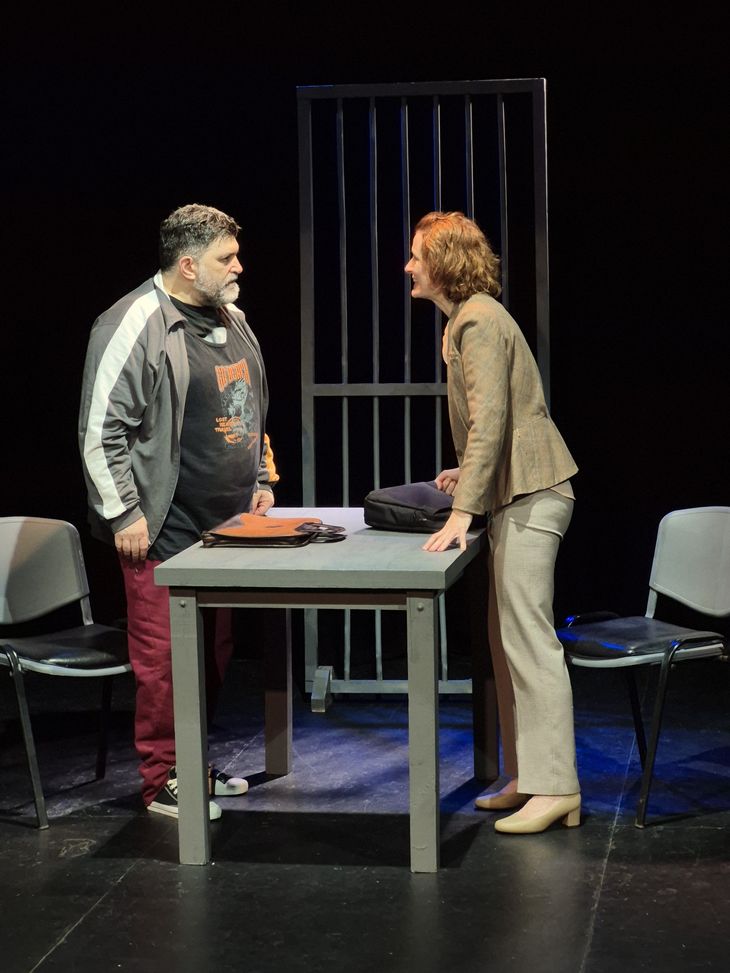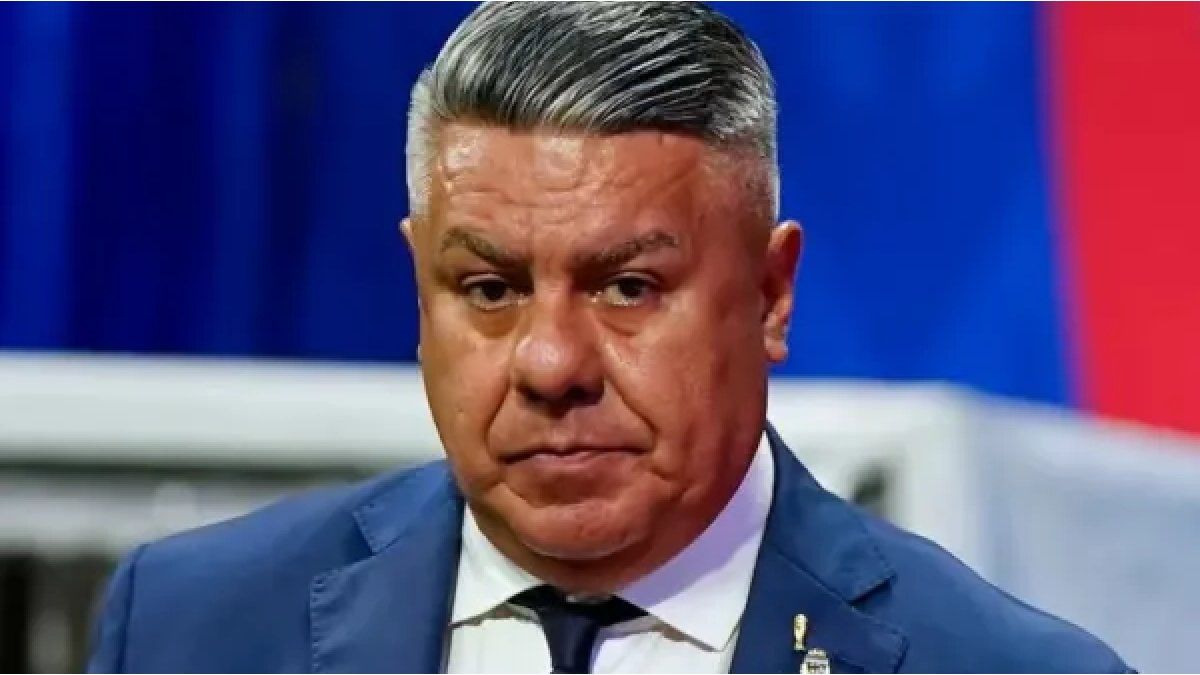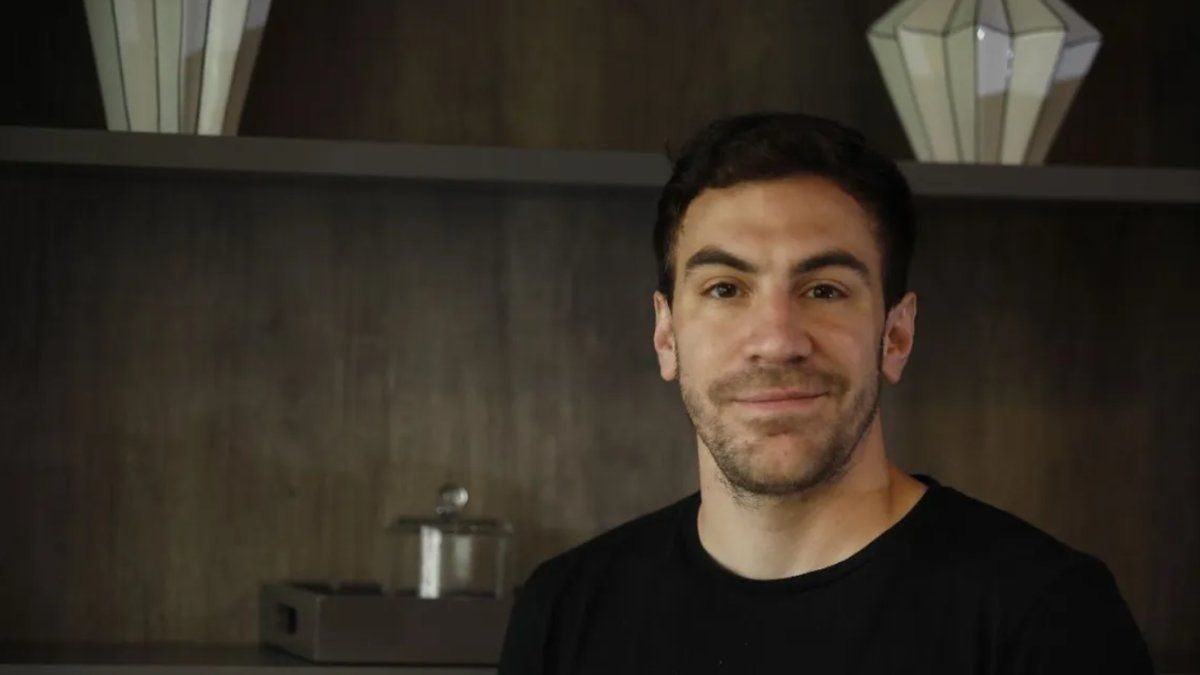A Jewish lawyer who works as an ex officio defender in the overloaded judicial system of the conurbano of the province of Buenos Aires agrees to defend a neo -Nazi who has just committed a crime for racial hatred that becomes tremendously media.
Over there it goes “Steel toe”, The Canadian work David Gow directed by Carlos Kaspar and starring Romina Pinto and Iván Steinhardt, who also translated and adapted it. Wednesday 20.30 is presented on Wednesdays at the shed.
The work addresses issues such as hate to different, who professes another religion, abroad, to diversity, which he thinks differently, to which you saw different, poor and rich. The imprint of the lawyer’s character, with a liberal spirit with whom he chooses to live their Jewish roots, get when they both are forced to meet to put together a defense.
“The work was written in the 90s and is an omen of what is happening now, but at this time the regrowth of the rights seems a regression to obscurantism because the manifestos of these subjects are like that, they deny poverty, they talk about abortion in a cavernaria way, as Discépolo would say,” the ignorant have equal us “, Reflect Kasparwith whom we talk.
Steel Toe – Ph Sun Vannelli
Journalist: The work also seems more in force than ever in relation to war in the Middle East and the resurgence of anti -Semitism, what can you say?
CK: When ignorance joins insecurity and fear is a perfect cocktail for hate. When you are desperate and feel that no one listens to you or that there is no answer, any crazy man who appears, throws four extremist sentences with some security and it is inevitable that he sticks. It is very difficult when hateing is crushed from above. If they insult their own and strangers it is logical that hate spreads.
Q.: For hate the crimes more in the name of ‘La Libertad’, a word so used today in Argentina, what reflects the work and that you reflect on this Argentina today?
CK: Undoubtedly the word freedom has always been bastard but today much more. It has unfortunately transformed into Muletilla, has lost its true meaning, believing that one can talk about freedom departing a retiree’s head or removing resources to the claw, there is a great contradiction. We travel a dangerous moment, upon receiving such exacerbated speeches, it is not uncommon for people to be released. I work not to fall into hate trap. The same goes for Trump and this must be deported to all foreigners. What happens in Gaza is nothing more or nothing less than that, it is neither religious nor ethnic or historical law, it is hate. The animal appears and the irrational.
Q.: What contact points did you find when you saw “Vichy incident” by Miller, which is presented on Thursdays in Callejón Espacio?
CK: Talk about hate and as anida in each one, the issue is that we do with that hatred and how it can be exacerbated from power. “Teaching to hate is as easy as teaching to play ball,” is a phrase of the work, “Vichy incident,” directed by Pablo Gorlero, also talks about racism, which is a form of hatred. The interesting thing is how each one is affected. In Vichy a repressor state pursues, in “Toe” it is a democratic country where there is an apparently racial murder, not because it is not but the cover says that, but the problem is not racism but hate. How hatred transforms people and what we do with that, it crosses us all. This government generated in myself sensations of hatred that I never thought I would have, I work daily to run about it but one clouds and stop seeing.
Q.: How did these characters build all their fears, prejudices, rejections why does she agree to defend a neo -Nazi? Why does the neo -Nazi agree to be defended by a Jewish woman?
CK: We adapt the neo -Nazi to the local, a man who in a state of drunkenness kills a Bolivian citizen. A lawyer is put to a Jewish woman, he accepts because he understands that he is part of the system and wants to leave out his group, who treats him as a civilian and not a man who belongs to that neo -Nazi group. It plays as is seen a woman who transgresses certain lines of tradition and agrees to defend him. She takes it as an ethical challenge that has to do with the hypocratic oath of doctors, sometimes they assume the defense beyond prejudices even if they have them. What they have in front of what they always denoted, which put them in danger.
Q.: How did you structure the staging?
CK: The work presents three spaces, one has to do with the neo -Nazi, his loneliness, first his house after the jail, on the other side the house of the doctor. It is written in such a way that there are monologues in solitude, they tell how this process affects them. And in the middle the room where they are located, the place of confrontations. It is a minimalist setting, the important thing was the word, with some elements that hint the context.
Carlos Kaspar

The director Carlos Kaspar.
Q.: How do you see theater and culture today?
CK: The situation is disastrous, we are in a state of emergency, what happens with the Theater Institute, INCAA, has been taken to culture workers as one of the causes of this crisis, we are as objectives of this cultural battle, but it has nothing cultural. This will cost us very expensive, at some point it will be rebuilt again, nothing is eternal, this will also happen, the only way to resist is to do, as you can. Argentines have saved ourselves from violence thanks to culture. In 2001 the actors opened the doors of their homes and did works for 5 spectators, the same in open theater, we always recycle in one way or another, we are responsible for reflecting the reality that crosses us. The artist is a communicator, crossed by the paradigm that governs us. We have to fight and move threads so that our legislators slow down this inaster. I regret that the film industry that has always distinguished us is like that, but people continue to go to the theater, the commercial, the independent, and realize. Democracy is based on tolerance.
Source: Ambito
I am an author and journalist who has worked in the entertainment industry for over a decade. I currently work as a news editor at a major news website, and my focus is on covering the latest trends in entertainment. I also write occasional pieces for other outlets, and have authored two books about the entertainment industry.




